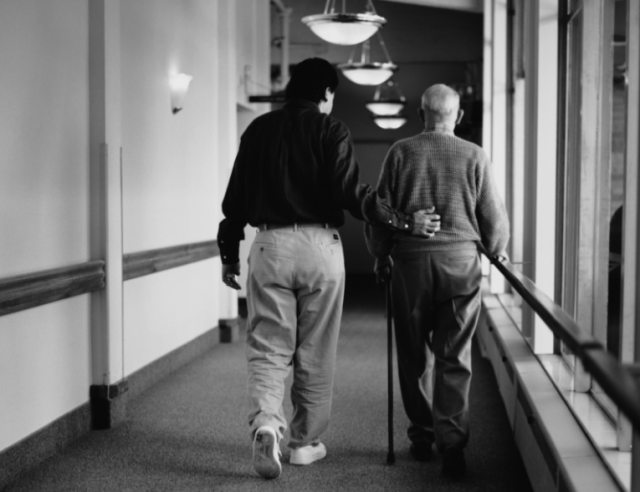2) Schedule your visit at lunchtime: McGinnis said lunchtime is the busiest time of day. While facilities may publish their staffing ratios, that's a meaningless number to the average consumer. But you can look for other signs, during this busy time of day. "If you see people waiting to get their call light answered," that can mean the facility is understaffed. "If they don't have enough people during lunchtime, they won't have enough at night." This is also a good time to pay attention to how the staff treats patients. Are they condescending or nasty? Do they talk about the patients as if the patients were not right there? And while you're there during lunch, take a look at the food. McGinniss acknowledged that people at larger institutions -- from colleges to nursing homes -- will complain about the food, but still there's a range. Try it. Will any special dietary needs be met? As you narrow your choices to one or two places, visit on the weekends, too.
3) Visit your loved one often: "The more visitors the patient has, the better the care is going to be," McGinniss said. In addition, an elderly or otherwise frail patient is unlikely to be her own best advocate. It is the regular visitor who will notice that any one of a number of things are not quite right: The walker is too far away from the bed (which could mean a fall if the patient has to struggle to get to it); there's no water on the nightstand; the patient isn't being turned enough, which can lead to bedsores and from there, the possibility of sepsis, a potentially life-threatening infection. It is the regular visitor who will notice these things and can effect change.
4) Is there a family council? This is just what it sounds like: a group of family members who care about the residents, although McGinniss cautioned about making sure this is not simply an "activity-based" group. It should be about addressing problems or issues at the facility. "They can be powerful tools," McGinniss said. She recommends asking about the council, who the president is, and when they meet. In addition, family councils are "a way to share burdens with each other."
5) Look for a "dual-eligible" facility: Many people think Medicare covers nursing home care for as long as someone needs it. It does not. Medicare only covers 100 days in a nursing home. Unless your loved one is very wealthy, you need to consider finances right up-front. Nursing home cost is "just extraordinary" McGinniss said, "$7,000 to $8,000 a month." Consider how quickly your loved one might go through any savings and become eligible for Medi-Cal, which is the major payer of nursing home care. If the nursing home does not accept Medi-Cal it can evict your loved one, should your family become unable to pay. So look for a nursing home that accepts both Medicare (for those first 100 days) and Medi-Cal (in case your loved one runs out of money).
Finally, even though KQED's and CIR's investigation has revealed that the state is not doing its job in investigating abuses, if you feel something wrong is happening, document it. "Document as much as possible," McGinniss said. "The nursing home and staff are supposed to report suspected abuse."
CANHR has multilingual resources on its website, including a nursing home evaluation checklist and a nursing home guide.
